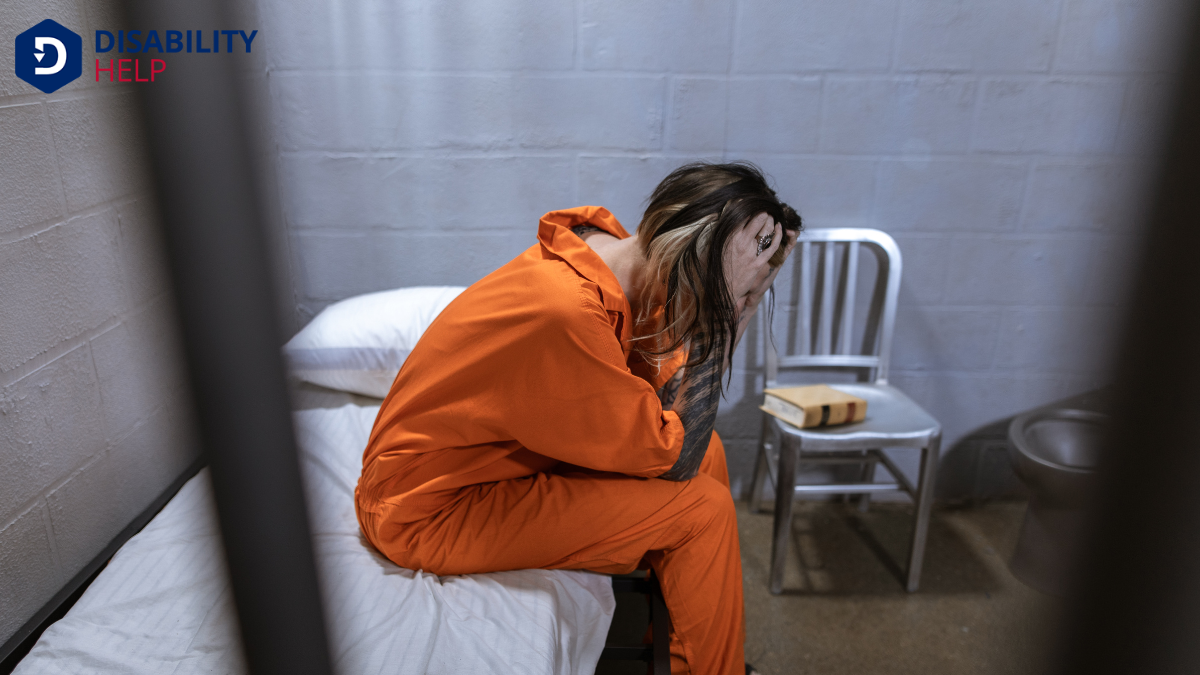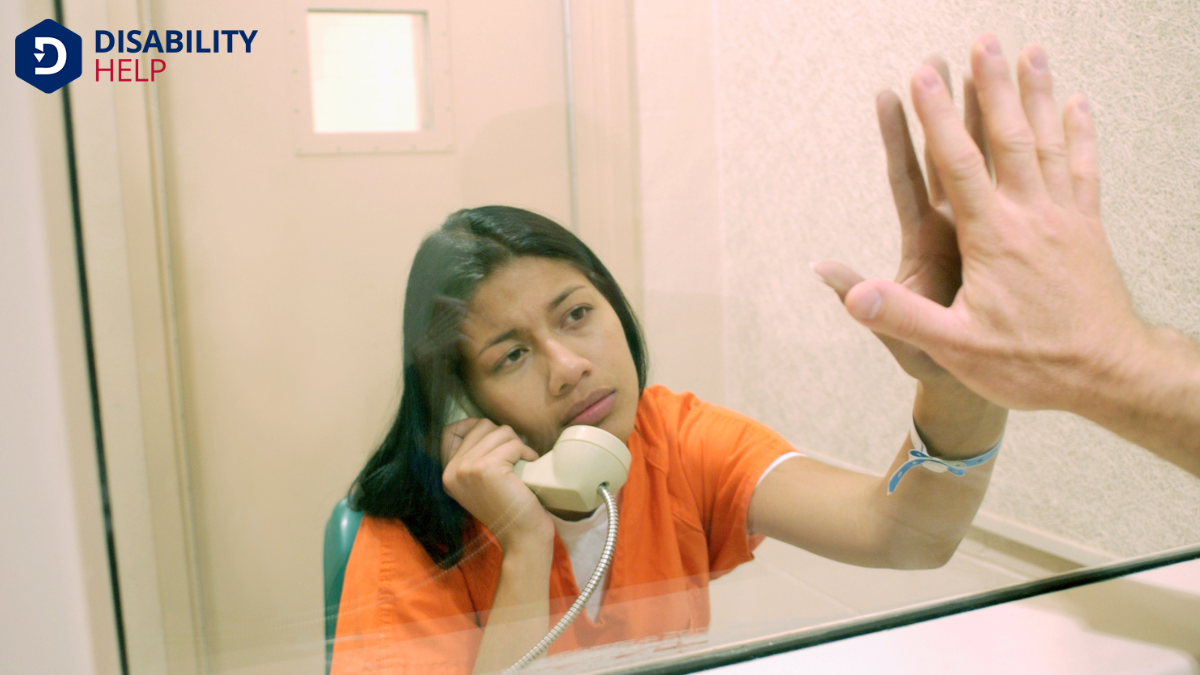When it is understood that prison, the question often arises: are there protections for disabled inmates? The Americans with Disabilities Act (ADA)A U.S. law that prohibits discrimination against individuals with disabilities in all areas of publi... provides a legal framework, but how well is it enforced behind bars? It is acknowledged that practical challenges like resource constraints and insufficient staff training can complicate matters. So, what happens when the theory doesn’t match reality? Let’s explore what disabled inmates truly face inside correctional facilities.
Key Takeaways
- The Americans with Disabilities Act mandates reasonable accommodationsModifications or adjustments in healthcare settings to support patients with disabilities. for disabled inmates in correctional facilities.
- The Eighth Amendment ensures protection against cruel and unusual punishment, including inadequate medical care for disabled inmates.
- Correctional facilities must provide equal accessThe principle that all individuals, including those with disabilities, should have equal opportunity... to programs and services for disabled inmates.
- AdvocacyThe act of arguing in favor of, supporting, or defending the rights and interests of individuals or ... groups work to bridge the gap between legal protections and practical implementation for disabled inmates.
- Prison authorities are responsible for ensuring compliance with disability rightsThe legal and human rights afforded to individuals with disabilities, often the focus of advocacy an... and providing necessary accommodations.
Legal Frameworks for Protecting Disabled Inmates
Although the issue of protecting disabled inmates might seem complex, it’s vital to understand the legal frameworks designed to safeguard their rights. We’re primarily looking at the Americans with Disabilities Act (ADA), which mandates that correctional facilities provide reasonable accommodations to guarantee equal access to programs and services for inmates with disabilities.
This means facilities must assess and address individual needs, such as mobility aidsDevices designed to help individuals move around more easily, such as canes, walkers, or wheelchairs... or communication assistance.
Additionally, the Eighth Amendment protects against cruel and unusual punishment, requiring prisons to provide adequate medical care. Courts have reinforced these protections, emphasizing the necessity for humane treatment.
Challenges Faced by Disabled Prisoners

While the legal frameworks exist to protect disabled inmates, significant challenges remain in the practical implementation of these protections.
We face numerous obstacles in ensuring these laws translate into real-world action. Facilities often lack the resources or training needed to accommodate disabilities effectively. Staff may not fully understand the specific needs of disabled inmates, leading to inadequate support and care.
Additionally, there can be delays in accessing necessary medical equipment or services, which exacerbates the difficulties faced by disabled prisoners.
Communication barriers can also arise, making it hard for inmates to express their needs or grievances.
When we consider the daily struggles, it's evident that more work is needed to bridge the gap between legal rights and actual, lived experiences of disabled individuals in prison.
The Role of Advocacy Groups in Supporting Disabled Inmates
Advocacy groups play an essential role in supporting disabled inmates by bridging the gap between existing legal frameworks and their practical application.
We recognize that legal protections are often complex and challenging to navigate, especially for disabled individuals in prison. These groups provide a voice for those who might otherwise be overlooked, ensuring that their rights aren't ignored.
By raising awareness, they help highlight the unique challenges disabled inmates face. They also collaborate with legal experts to push for policy changes and ensure laws are properly enforced.
Through direct support and public campaigns, they foster a more inclusive prison environment. Their efforts remind us that everyone deserves fair treatment, regardless of their circumstances or limitations within the prison system.
Responsibilities of Prison Authorities in Ensuring Compliance
As advocacy groups work to support disabled inmates, it's equally important for prison authorities to uphold their own responsibilities in guaranteeing compliance with legal protections.
We must remember that these authorities have a duty to respect the rights of disabled inmates and provide necessary accommodations. They need to consistently assess facilities to confirm accessibilityThe design of products, devices, services, or environments to be usable by people with disabilities.... and address individual needs promptly.
Training staff to recognize disabilities and respond appropriately is vital. By enforcing policies that promote inclusivity, authorities can create an environment where disabled inmates feel safe and respected.
Regular audits and transparent reporting can help maintain accountability and guarantee that practices align with legal standards. Together, we can foster a system that recognizes and protects the dignity of all inmates, regardless of their abilities.
Real-World Experiences of Disabled Inmates

Despite efforts to guarantee compliance with legal protections, the real-world experiences of disabled inmates often reveal a stark contrast between policy and practice. We frequently encounter stories where accessibility needs remain unmet or where medical care is delayed. These experiences highlight a system struggling to provide even the most basic accommodations.
Disabled inmates often find themselves isolated, lacking necessary support and equipment. It's not uncommon to hear of wheelchairs being denied, hearing aids going unfixed, or communication barriers leading to misunderstandings.
These gaps create an environment where vulnerabilityThe increased risk of harm or exploitation faced by individuals with disabilities, often due to soci... is magnified. We need to listen to these voices and push for change. Understanding these experiences is vital if we’re to advocate for meaningful improvements and ascertain that everyone is treated with dignity and respect in the prison system.
Frequently Asked Questions
How Can Families Support Disabled Inmates From Outside the Prison?
We can support disabled inmates by staying in regular contact, advocating for their needs, and understanding their rights. Let’s collaborate with legal advocates and prison officials to guarantee they receive the care and accommodations they deserve.
What Types of Disabilities Are Most Prevalent Among Inmates?
Let's explore prevalent disabilities among inmates. We often see mental health issues, learning disabilities, and physical impairments. Together, we can advocate for understanding and support to guarantee humane treatment for all individuals in correctional facilities.
Are There Specialized Training Programs for Prison Staff on Disability Awareness?
We recognize the importance of disability awareness in prisons. Staff training programs focus on understanding diverse needs, ensuring safety, and providing appropriate accommodations. Let's work together to promote inclusivity and respect within the correctional system.
Can Disabled Inmates Access Mental Health Services in Prison?
We'd like to know if disabled inmates can access mental health servicesProfessional services that support individuals in managing mental health conditions, such as therapy... in prison. Ensuring these services are available and accessible is essential for their well-being. Let's explore how prisons address mental health needs for disabled individuals.
How Do Prisons Accommodate Inmates With Mobility Impairments?
We guarantee that inmates with mobility impairments receive proper accommodations like accessible cells, ramps, and specialized equipment. It's essential that we continue advocating for their needs to create an equitable environment within the prison system. Let's support inclusivity.
Conclusion
In our exploration of protections for disabled inmates, we've seen that while legal frameworks like the ADA and the Eighth Amendment exist, the reality is more complex. Challenges in implementation persist due to limited resources and inadequate training. Yet, advocacy groups play an essential role in pushing for improvements. As we move forward, we must hold prison authorities accountable and guarantee all inmates receive the care and access they deserve. Let's work together to make meaningful change.






